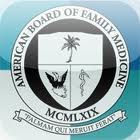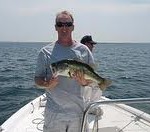August 4th, 2011
The End …
Greg Bratton, MD
I did it. I graduated.
I remember in sixth grade writing a paper about wanting to grow up to be a doctor, and today, I can truly say, “I did it.”
 Graduating from residency, beginning my fellowship, and completing my Family Medicine board exam has made me feel as if I have finally put the punctuation at the end of this journey’s sentence. And despite having 12 more months to learn and refine my skills in Sports Medicine and another board exam on the horizon, I feel free. Free from the feeling of swimming upstream, free from the fear of not making it, and free from not seeing the light at the end of the tunnel.
Graduating from residency, beginning my fellowship, and completing my Family Medicine board exam has made me feel as if I have finally put the punctuation at the end of this journey’s sentence. And despite having 12 more months to learn and refine my skills in Sports Medicine and another board exam on the horizon, I feel free. Free from the feeling of swimming upstream, free from the fear of not making it, and free from not seeing the light at the end of the tunnel.
I know I will face more adversity, self-doubt, and obstacles in the future, but, right now, I am enjoying this feeling of accomplishment. For the first time in a long time, I can take a deep breath and relax.
However, I have to ask myself, “Why was the journey so hard and stressful?” Is it because I am a Type A personality that can make a massage stressful? Is it because the relationship medicine and I have is similar to that of a square peg and a round hole? Or is it because it really is just that difficult? I believe the latter.
So, in an effort to help ease the journey for others, I have compiled a Top 10 list of things I think can make the path to being a doctor a little more enjoyable and/or tolerable.
Here we go…
10. In college, major in something other than pre-med. You will learn enough science in medical school. Choose something like art, philosophy, or dance. It will expand your mind, and you will become well rounded and able to communicate with patients on a “natural” level.
9. Remember that, ultimately, you are a person first and a doctor second. Patients will relate to you. They will trust in your treatment plans and adhere to your recommendations. Find time to decompress. Take weekends off. Schedule date nights. Get involved with charities. Go fishing. Do something to keep in touch with who you are as a person. Don’t let medicine define you. You were John Doe before medical school, be John Doe after.
8. Date. Get married. Have children. Some say that it is too much to handle with studying, it is too expensive, or it is “just not the right time.” I disagree. I think it makes you better. Plus, no matter how hard of a day you’ve had or how grueling your week is, when you get home, someone is there to take your mind off of it. As a buddy of mine said after having his first son, “there are no more bad days.”
7. Read gossip magazines. After hours of memorizing Robbins Pathology or Grey’s Anatomy, you’ll need something to purge your brain. And what is better than keeping tabs on Lindsay Lohan, Britney Spears, and all the other train wrecks in Hollywood?!?! In addition, it will help you understand the many psychiatric problems you will one day be diagnosing and treating.
6. While at dinner, no matter how many of your classmates or fellow residents are present, DO NOT TALK ABOUT MEDICINE!! It always happens — you go out for a relaxing evening and inevitably start talking about work. Don’t do it! It is not fair to the non-medical professionals listening. Instead, talk about sports, weather, or the latest happenings in US! Magazine (another reason #7 is so important).
5. Periodically, wear normal clothes. I think we all will agree that one of the benefits to working in a hospital is the that you can wear scrubs every day. But remember, scrubs are forgiving; they won’t let you know that you’re not tying the drawstring as tight as you used to. Whether you weigh 150 lbs or 180 lbs, you are still going to wear the same size scrubs. Put on your jeans — they will tell you the truth about your circumference.
4. Exercise. Endorphins are good. Plus it will counteract the late night Cheetos, pizza, and soda consumed while being on-call or studying. And before you say it, there is always time! Just find it.
3. Call home. Talk to your mom and dad, brother and sister, hometown friends. Just because you’re “in medical school” does not mean you get to stop being their son, sibling, or friend. They are your support. Use them, lean on them, involve them. And remember, you are where you are because of them.
2. Keep an open mind while doing 3rd-year rotations. Even if you think you know what you want to do, don’t force yourself to like it. Enter each rotation with an open mind. Go with your gut. I wanted to do orthopedics but found myself “tolerating” the OR, not loving it. Yet, I loved taking care of families, seeing the same patient routinely, and developing relationships with patients. So I chose Family Medicine. Had you told me during my 1st or 2nd year of medical school that I would end up doing primary care, I would have laughed at you. But I love it and can’t imagine doing anything else.
1. Take a deep breath and relax occasionally. Don’t be like me and wait until you receive your diploma to re-center yourself. Do it daily. Know that although the journey is long, it doesn’t have to be rushed. Enjoy the moment. Enjoy the challenge. Realize that you, too, are on your way to achieving your dreams.
And, before you know it, your graduation day will be here.
The next chapter is frightening, but I’m ready, and you will be too. I don’t know where I will practice, what the government has in store for primary care, or how medicine will evolve, but it really doesn’t matter to me much right now. Today, I am happy. Today, I am free.
I did it. I graduated.
I hope you’ve enjoyed reading about my thoughts and experiences during the last year. I’ve definitely enjoyed sharing them.
Greg Bratton




Very well said. Simply so true. Good luck.
Amazing..very good and practical tips..i wish i had them before my residency..i will recommend to all residents i know..great and congratulations!
I remember when i “Finally” became a Pediatrician, my teacher told me “Live your life as a human being and not as a pediatrician” and I see the echoes here too. Too easily said and much easily forgotten. the dining table discussions over time become the signs/ symptoms/ therapeutic options!!!
All the Best and well said
Great tips written and commented. I think all it’s very often forgotten just because… we are doctors!!
In Portugal (and I think at USA even more) it’s very difficult to confront these truths with the true reality. Especially in the medical specialities and just now, when everything it’s more difficult…
Even so I think it’s very very good someone remembers sometimes that we are persons and afterward doctors!
Very good!
And please don’t eat cheetos, pizza and soda anytime if it’s possible!
Congratulations.
Thanks for sharing your key to success,with us.
Keep it up,boy!!!
Hey man !
I agree with all of the above. I worked in EM for 13 years but also have FP Boards. I got out of the rat-race by refusing all insurance. I still do a lot of pro bono care but am happier working less, kayaking and sailing more.
Divorced after many years of strife. Two great children. And now in a 9 year relationship with a great guy 11 years younger than I. Leasing my downtown house to a Dean from MUSC and living on John’s Island (rural, great views of the water, great organic produce at a nearby stand).
There is a lot of great life after residency.
Best,
Leslie
Congratulations! And thanks for sharing!!
#10 – I tell premed students this all the time!
I’m so proud that my little ‘Tern and Chief protege is all growed up!! Now go ahead and push your little one’s bedtime back 30 minutes and lets hang out. I need to teach you how to make it out in the real world. The Game never ends, the rules just change along the way.
Congratulation Greg. Good luck for yuor life and your career. I appreciate your interest in family Medicine.
I have just sent your list to my son: he’s in the second year of medical school.
Dear Greg,
First of all: Congratulations, from the bottom of my heart! I do absolutely agree with your views. The most important part is to stay human, to interact with humans, and to remember what the main purpose is to enter the medical profession: to help others!
“The English Surgeon” comes to mind, who does what some one ought to do well when engaging in the complexity of life and the area of healing – giving all he has to others. Also, focusing on other issues in life reflects a mature mind. I am sure your patients love you and will be taken care of very well indeed by you! Keep on believing, keep on smiling, keep on being You. Job excellently done.
People like you are needed in the profession.
Best of luck, Elke :o)
Congratulations! thanks for your tips!
Congrats on the big finish Greg! As a fellow FP, I can fully appreciate your words and have to remind myself of many of them daily (especially taking care of myself). I have found that having a family has made engaging my patients in real life talks even easier! I wish you that same joy and the deep satisfaction of helping others with you natural talent and abilities. All the best!
I think your Top Ten list could apply to many other situations where one is reaching toward a long-term goal. I especially like the statement in #8 about how the birth of his child changed your friend’s perspective.
Narcissists can make good doctors too. Just have to remember to take care of your patients with as much caring as you do yourself. Things have changed substantially in the past 45 years… our generation just missed the ‘me’ part. Be advised that medicine is a jealous mistress to perform well over the long haul.